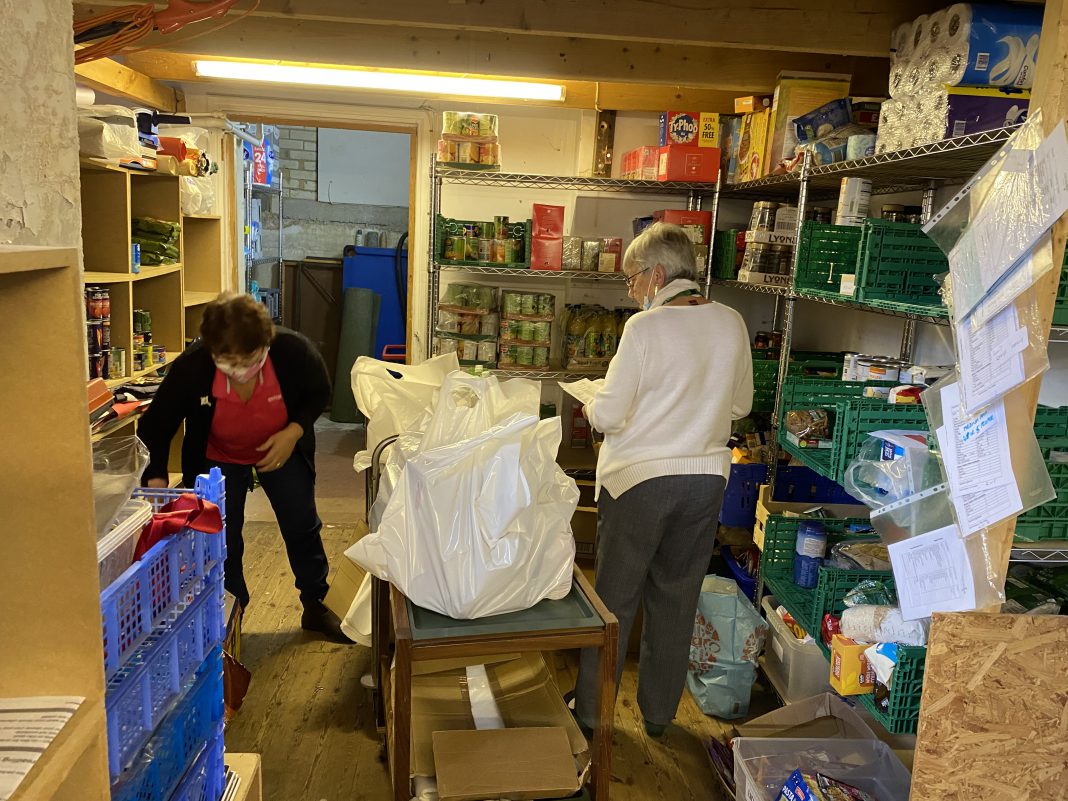Provision of local welfare support by local authorities has long been recognised as a key part of the social security system, and this is reflected in the allocation of funds to local authorities to provide people with emergency support when they need it most.
The type of support varies, but can include cash grants, low cost loans, food or fuel vouchers, or essential items such as white goods.
Councils do not always provide this sort of help though, and Rother District Council follows what is termed an outsourced model. This refers to the situation where the majority or entirety of the local welfare budget has been allocated as grants to local voluntary and community sector (VCS) organisations – usually to support their ‘business as usual’ activities such as emergency food providers.
However we are happy to report that Rye Food Bank’s applications to the Sussex Community Foundation and Little Cheyne Court Wind Farm for grant support have been successful and we are enormously grateful for this help
In outsourced models, the organisations that receive grants do not usually provide any specific local welfare service as a result of receiving that grant, but instead use the resources to expand the provision of their service or use it to meet rising demand. It is only more recent injections of government funding which has made this possible, such as through the £63 million from DEFRA in summer 2020. Unfortunately there is no local welfare offer in place here, not even basic grant funding for local VCS providers.
Some clients of Rye Food Bank would benefit from a welfare officer, especially for advice and support in negotiating the complexities of Universal Credit and Rye Food Bank manager Chris Emson is keen to help wherever possible, and has been in negotiation with Hastings Advice and Representation Centre (HARC) to arrange regular input from a welfare officer. But this is currently suspended due to the second Covid-19 lockdown.
Demand for help is growing
As of this week we have noticed a small increase in numbers needing help and we are geared up as much as we can be for the time being, in case we experience a dramatic increase in demand. However the government has changed its mind on what it will do to help. Demand during October was as below:
| Week | Adults | Children | Total |
| 7 Oct 20 | 38 | 23 | 61 |
| 14 Oct 20 | 40 | 30 | 70 |
| 21 Oct 20 | 50 | 30 | 80 |
| 28 Oct 20 | 36 | 33 | 69 |
| Total | 164 | 116 | 280 |
A big ‘Thank You’ to everyone who has donated to us. We appreciate it very much. This week we need smaller packets of cereals (not everyone can cope with big 1K boxes!), squash, tinned potatoes, sugar and washing up liquid.
Contact details for Rye Food Bank: Phone: 07526 349847 and/or email: ryefoodbank@gmail.com
We are open at the Baptist Hall, behind the church in Cinque Ports Street on Wednesdays from 9am for donations and the food bank is open from 1pm until 3pm. The Rye Food Bank phone number is not manned all the time, but you can leave a message and we will respond. Email is better and this is monitored several times during the day and in the evening.
Donations make a big difference
At this difficult time, if you are someone who receives a winter fuel payment but doesn’t need it, a season of good will gesture could be to donate it to Rye Food Bank. Such a donation could make all the difference to a struggling family. Every penny donated is spent on providing food to those in crisis.
Monetary donations can be sent to the Bexhill Food Bank Rye Branch at Barclays Bank, sort code 20-54-25, account number 83501116, through the Jempson Foundation or cheques to Rye Food Bank c/o 24 North Salts, Rye. If you donate via the Jempson Foundation and are a taxpayer, gift aid can be applied, thereby increasing the value of the donation by 25% at no cost to the donor.
If you need help from Rye Food Bank, contact Rother District Citizens Advice (CAB) on 01424 215055; email: help@rotherdistrictcab.org.uk, or the Hastings Advice & Representation Centre (HARC) on 0333 344 0681; email: info@harcuk.com.
Image Credits: m ivatts .



